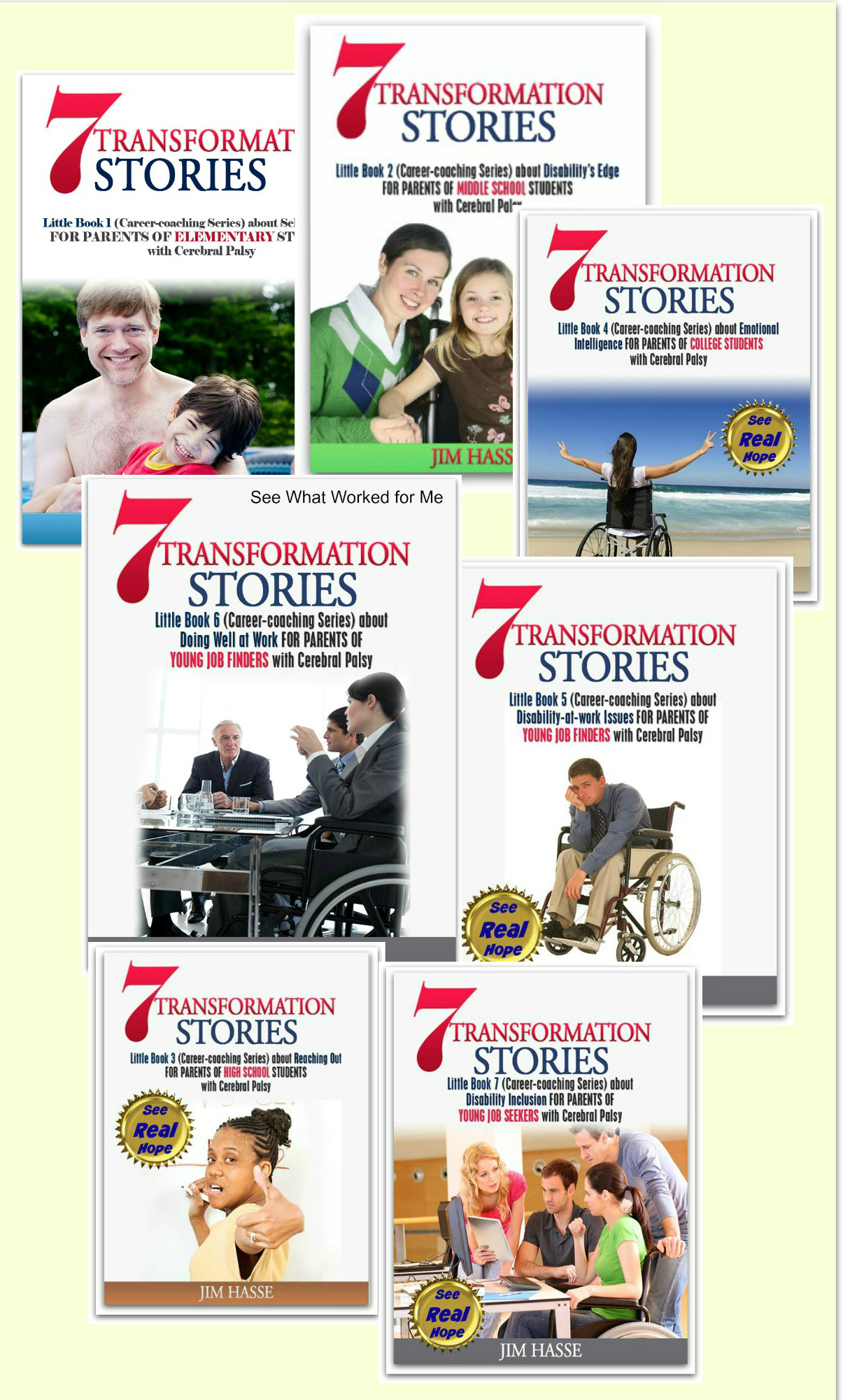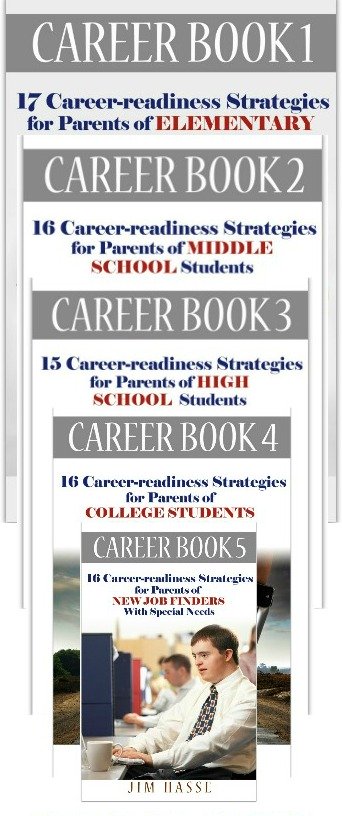Personality Quiz: Cerebral Palsy Career Builder for Middle School Students
By Jim Hasse, ABC, GCDF, Disability Employment Expert
_________________________________________________________
Here’s a quick personality quiz that can give you an indication of what kind of work environment will most likely be the best match for your middle school student with cerebral palsy (CP) when he or she enters the workforce.
This exercise pivots on what success means to an individual. Knowing when and why your youngster feels successful can have a far-reaching impact on his or her career down road in terms of finding fulfillment while at work.
For instance, I have found that defining what success means to me has helped me more easily pinpoint my accomplishments and identify the key success factors in my career.
That list of accomplishments and key success factors has given me the framework for developing my resume and my talking points for showing prospective employers how I can contribute to their continued success.
By first recognizing what must be present before I -- or others who work with me -- can feel successful, I have a bit of self-knowledge that enlightens everything from my career choice to how I supervise others.
If, for example, as a job seeker with CP, I feel I need to have a perceived advantage over others to be attractive as an employee, this knowledge -- and the ability to use it -- can be my competitive edge in today’s job market. In my eyes, making the most of that advantage is my definition of success.
Such issues, of course, are probably not much of a concern for youngster at the moment. But, keep in mind the personality quiz below. Ask yourself which of these four ways of defining success best describes your youngster as he or she participates in school activities.
The results of this personality quiz may give you some insight into which environments at school, at home, or at play can best support your youngster as self-confidence builders.
 Thumbs up.
Thumbs up.Defining Success
Individuals tend to define success in at least four ways:
- Does
your youngster seek recognition?
Being praise-motivated means it will be more difficult for your youngster to feel successful unless he or she receives some kind of external recognition for it.
Taking this too far can lead to self-doubt and being needy. Accepting good, healthy praise feels great for individuals within this group.
If your youngster is a recognition seeker, he or she should probably look for environments where his or her efforts will be perceptible to others.
This type of person will not enjoy utter isolation, must at least hear about his or her success and will not work well with people who criticize others constantly or ignore accomplishments altogether.
A praise-motivated person will never feel good about a job that he or she can't do well. - Is
your youngster accomplishment motivated?
Being accomplishment-motivated means an individual will most likely feel the most successful when he or she knows a task has been completed and done well.
If you’re accomplishment-motivated, though, one of the trickiest things is that, if you receive praise and you don't feel like you accomplished anything, you tend to think the person praising you is insincere and untrustworthy. If you don't see for yourself that a job is not well done, then you often feel you should have left it undone. - Does
your youngster value of the feeling of “belonging?”
If your youngster is affiliation-motivated, he or she values being associated with a successful group. This loyalty could be to a family, a school, a club, a team, a nationality, country or even a continent.
At any rate, “success” is being a part of a successful group instead of being recognized for individual achievement. - Is
your youngster influence motivated?
If your youngster is influence-motivated, that doesn’t mean he or she wants to force someone else to do things “my way.” Instead, your youngster wants to inspire others to take that path.
An influence-motivated person may feel he or she has a better way of doing something, a better plan for a project, a better idea for solving a problem or a better view of the consequences of a good or bad decision.
Which of these four ways of
defining success
best describes your youngster
as he or she participates in school activities?
Join PACER’s Facebook
discussion.
You can use this personality quiz as a rough guideline for how your youngster generally
defines success for his or herself (recognition, accomplishment, belonging and
influence). With that knowledge, you can:
- Help
your youngster learn about what true success means for him or her.
- Guide
your youngster in gaining the best fit for him or her at home, in school
or at play.
- Coach your youngster in using that self-awareness (and the awareness of different approaches others may have) to work more effectively with family members and school mates as practice for future decision making in terms of choosing a career, a job, and an employer as well working with co-workers.
Just for the record, I tend to be accomplishment motivated. That's reflected in my definition of success, the results of my personality quiz, in my resume and how I tie my experience in learning how to live well with CP into my success in business.
Which of these four ways of
defining success
best describes your youngster
as he or she participates in school activities?
Join PACER’s Facebook
discussion.
Return from Personality
Quiz to Career Test
Go to Cerebral Palsy Career Builders
This is Creative Commons content. You can freely and legally use, share and repurpose it for non-commercial purposes only, provided you attach this sentence and the following attribution to it (including the two links):
Originally written and illustrated by Jim Hasse, ABC, GCDF, owner of Hasse Communication Counseling, LLC, who, as a person with cerebral palsy, served for 10 years as a vice president in a Fortune 500 company during his 29-year career in corporate communication. He’s an Accredited Business Communicator, certified as a Global Career Development Facilitator and author of 14 Amazon books about disability awareness and disability employment issues.





